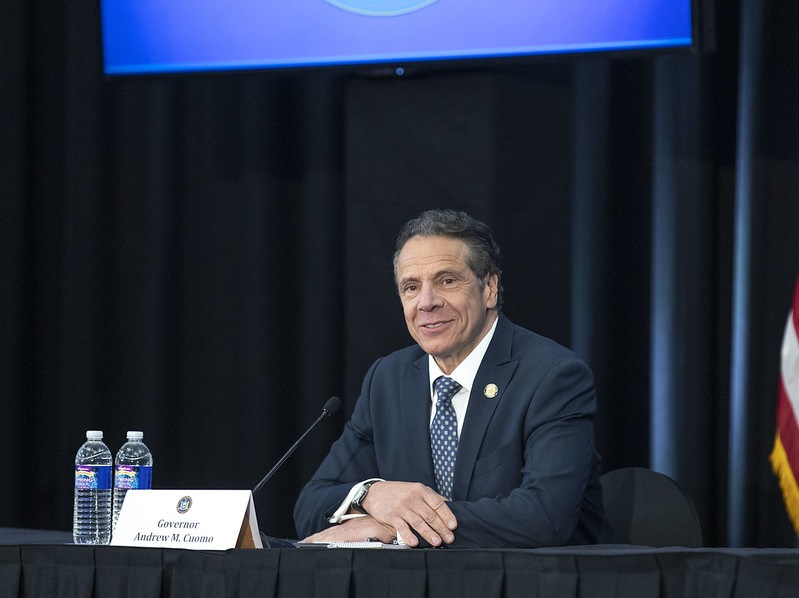
Governor Andrew Cuomo at a press conference in Rochester today (Photo: Mike Groll/Office of Governor Andrew M. Cuomo)
May 4, 2020 By Christian Murray
Governor Andrew Cuomo said that certain regions of the state may begin to reopen on May 15, the date the state’s stay at home order is set to end.
The governor said that the restrictions would only be lifted if a number of benchmarks were met.
He stated that upstate areas would likely reopen first. “The state has different regions that are in much different situations than other regions,” Cuomo said. “We will open on a regional basis.”
Cuomo made it clear that New York City is a region that would not be reopening anytime soon.
“If upstate has to be waiting for downstate to be ready, it’ll be waiting a long time,” Cuomo said at a press conference in Rochester this morning.
Cuomo laid out a number of benchmarks that a region must meet before he is willing to permit it to reopen. There are seven requirements that deal with items such as hospital capacity, declining COVID rates, and its infrastructure for testing and tracing.
Some regions of New York are closer to reopening than others.
Currently, no region meets all the requirements necessary to reopen safely and securely.
There is a lot of work to do. pic.twitter.com/OWaKHUeUUa
— Andrew Cuomo (@NYGovCuomo) May 4, 2020
Currently, no region meets all requirements, although some are more closer to meeting them than others.
New York City meets four of the seven requirements. The number of available hospital and ICU beds is still too low—with the benchmark being at least 30 percent. The rate of hospitalization in New York City also has to come down. Cuomo is looking for a rate of 2 per 100,000 residents, while NYC is above five.
The governor also said that each region must come up with a plan as to how workers would return to their place of employment safely. The plan would include measures to ensure social distancing.
Cuomo said that once a region is given the all-clear its economy would reopen in phases. He said that the first phase would involve the resumption of construction and manufacturing; the second would be professional services, finance and retail; then restaurants and hotels; and finally schools and entertainment.
The data is showing signs that the worst of the COVID-19 is over. The number of coronavirus deaths took a significant drop to 226, the state’s lowest one-day total in weeks.
